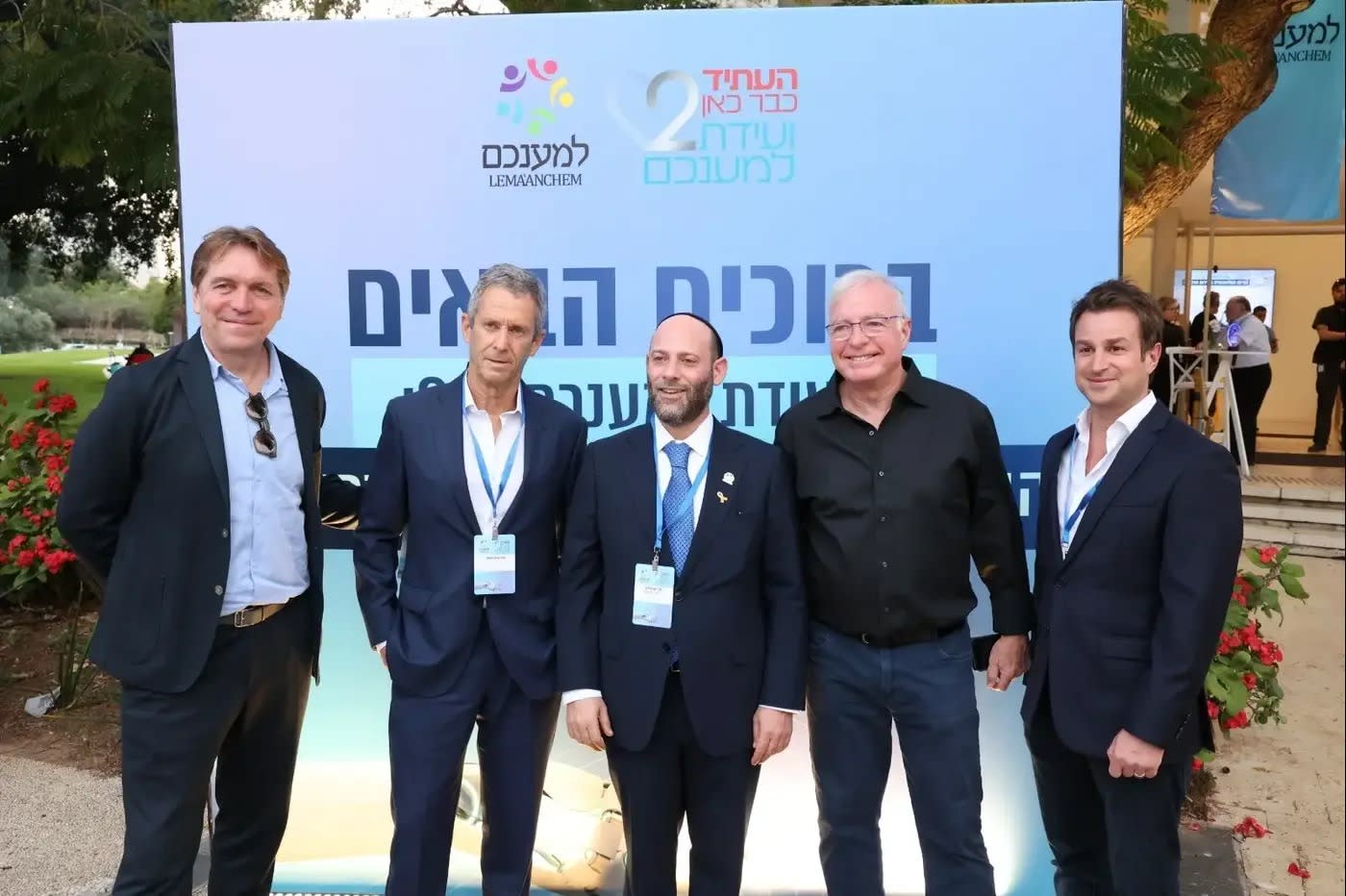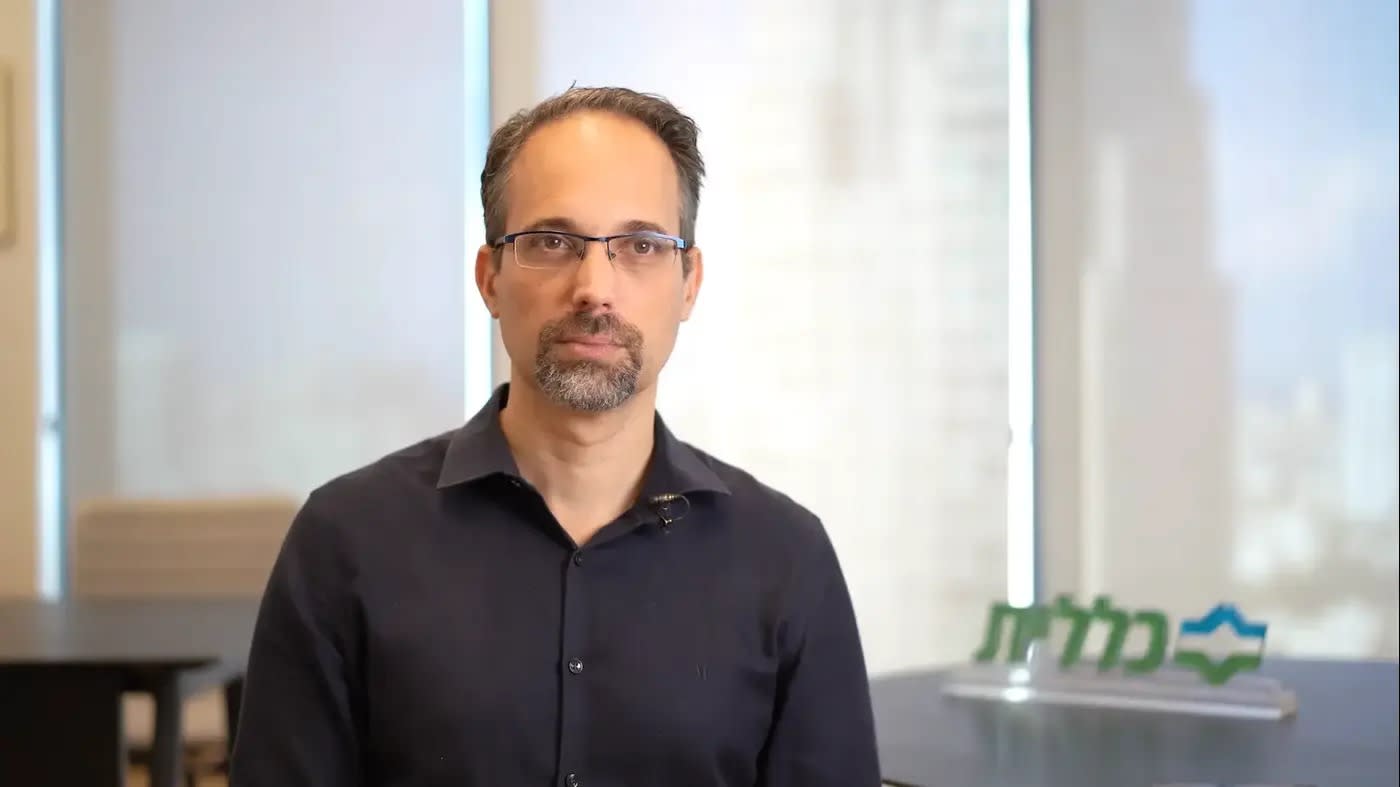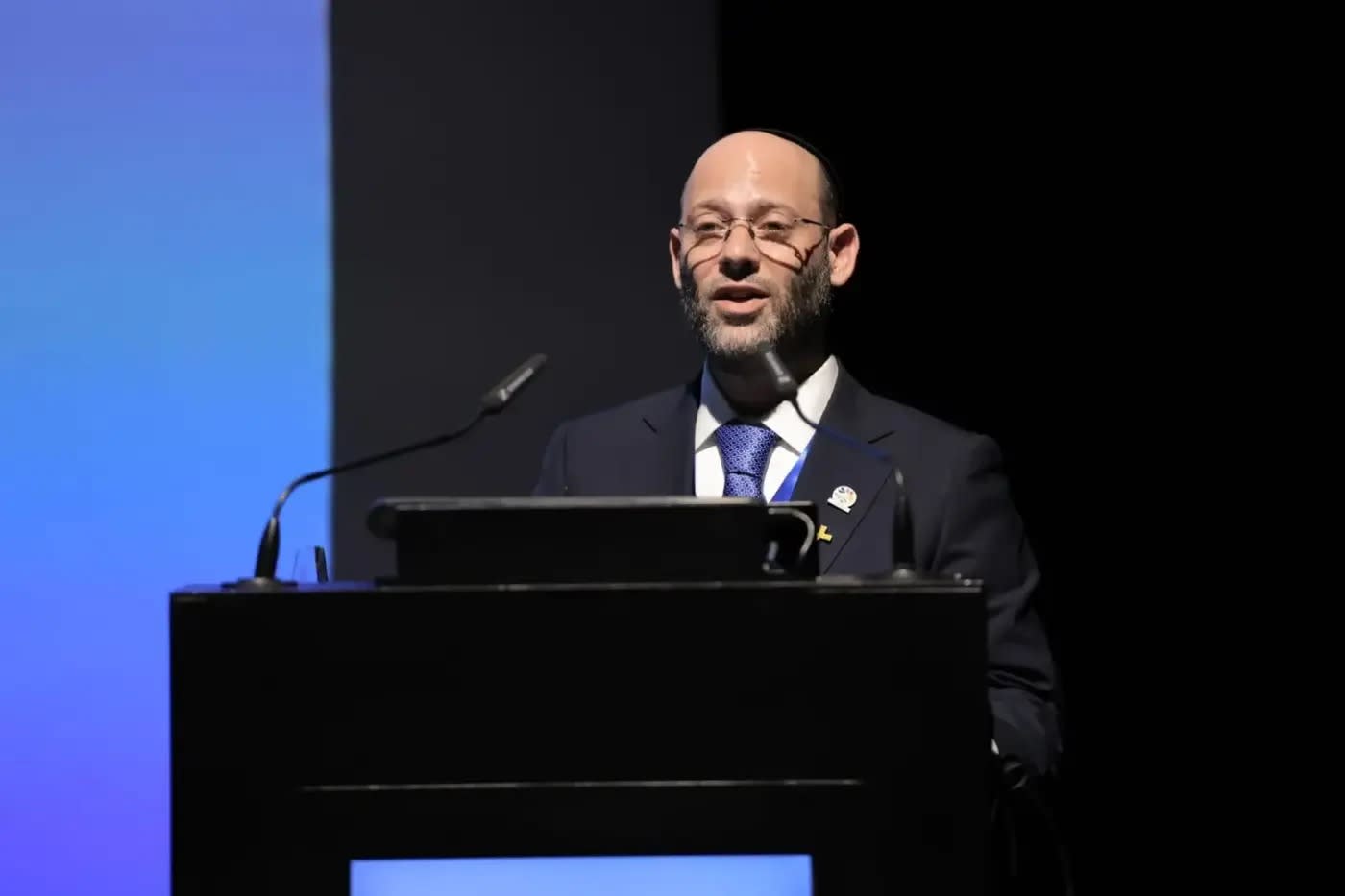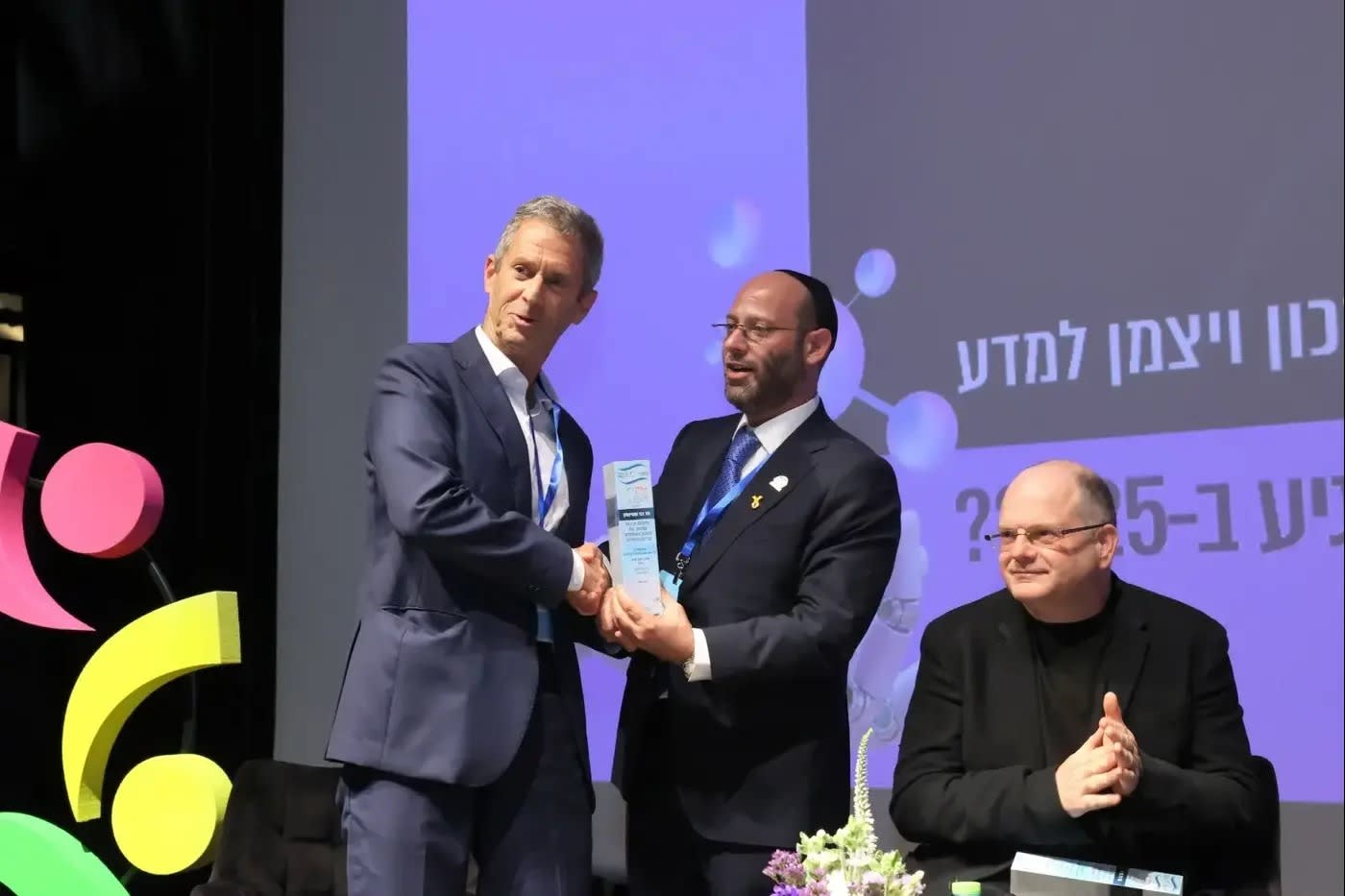How can a person with a severe brain injury play chess? What does eye movement teach us about the likelihood of developing Parkinson's disease? When will the family doctor know to tell us that next month we will be in pain? And can a robot pass a specialty exam written for a human?
The 2nd annual conference of the organization Lema'anchem was held last week at the Weizmann Institute of Science, where the latest technological developments of artificial intelligence and their applications in the world of healthcare were presented.
Judging by the news coming from there, it seems that the sky is the limit: On one hand, the computer has reached a point where it surpasses humans in preventing diseases, diagnosing them, and maybe in the future, treating them; on the other hand, there is no substitute – and apparently there never will be a substitute – for the abilities of a human doctor.
In a groundbreaking conference, the first of its kind in Israel, initiated by the chairman and founder of Lema'anchem, Rabbi Yossi Erblich, senior executives from AI giants from Israel and around the world, leading international scientists, and healthcare leaders, gathered to create partnerships and harness the significant technological revolution of the 21st century for the highest purpose – saving lives, extending life expectancy, and improving quality of life.
Among the organizations that sent their best minds to the conference were Google, Microsoft, IBM, and Check Point, which are at the forefront of artificial intelligence development in the world.

Two years ago, President Isaac Herzog awarded the organization and Erblich the President's Volunteer Award. He sent his blessing to the participants of the conference and said: "There is a clear connection between the capabilities of the Israeli healthcare system and the commitment to innovation and creativity. This is the principle under which Lema'anchem operates for the sake of over 20,000 patients every year. In recent months, you have demonstrated this even more strongly when you stood by the side of wounded IDF soldiers and victims of the October 7 massacre."
"Artificial intelligence has tremendous implications, and this may be the next chapter in human history," added Herzog. "This conference can be an opportunity to understand the significant implications inherent in artificial intelligence. I am delighted to discover that AI giants are fully committed to the topic. I want to thank the one leading this initiative, Rabbi Yossi Erblich, who always does good, whom I had the privilege of awarding the President's Volunteer Award to, as his life's work is dedicated to ensuring that patients receive the most professional assistance and support."
Prof. Ran Balicer, deputy director-general of Clalit Health Services and head of its innovation system, surveyed the latest developments in AI at the conference and described his personal experience following its new applications in the medical world: "I feel like the science fiction films I watched as a child are coming true before my eyes every week." He recounted that just recently, documentation was released showing a disabled person successfully playing chess using a computer-brain Neuralink.
"Today, it is possible to enter your mind in the deepest sense of the word – even without touching you," he said.
Regarding preventive medicine, diagnosis, and prediction of future problems, Balicer described how artificial intelligence assists in the early detection of rare and serious diseases. In certain cases, the number of days hospitalized has been almost halved thanks to the new technology, so the benefit of using it is also economic.
Balicer explained that artificial intelligence can now successfully predict, based on a patient's eye's movement, if they are developing Parkinson's or Alzheimer's, as well as to identify if the subject is male or female – something that humans cannot do. According to him, "the computer already learns on its own and implements by itself."

Will AI replace doctors?
Moreover, Balicer revealed that recent studies prove that computers are not only more accurate and "professional" than doctors and nurses, but are also perceived by patients as more empathetic than them. He rhetorically asked, "Is this the future we want to see?" and clarified immediately, "I believe strongly in human touch."
Balicer reviewed the innovative AI work done at the Clalit-Harvard Berkowitz Living Laboratory to realize this vision. He anticipates and hopes that artificial intelligence will not replace doctors but will be specifically "our redemption in caregiver-patient relations."
He explained that medical teams have become "clerks who spend most of their time in front of the computer clicking" in recent decades, and the ongoing revolution will "fire them from clerical work and return medicine to what it needs to be." Another claim made at the conference was that AI itself will not replace human doctors, but that doctors who use technology will replace those who do not.
Alon Haimovich, CEO of Microsoft Israel, who also participated in the conference, said that the importance and significance of the technological revolution bringing artificial intelligence cannot be underestimated. "This period is very reminiscent of the 90s when we found the internet and the 2000s when we introduced smartphones," he explained.
Prof. Yossi Matias, Global VP of Google and CEO of Google's Research and Development Center in Israel, added that the healthcare sector has the greatest potential for groundbreaking AI applications, and the organization is making enormous efforts in developing innovations that will bring this potential into action. He revealed that a model developed by Google has passed a US physician certification test with a score of 85.
Prof. Roy Ozery, VP of Resources Development and Communication at the Weizmann Institute of Science, also said, "Artificial intelligence has the power to completely change the rules of the game. It is a true and deep technological revolution that is already generating a revolution in research. The impact of using these technologies will eventually reach the patient's bedside. We are only at the beginning of the path."

Prof. Amnon Shashua, president and CEO of Mobileye, described the significant leap that AI has made recently. "The question being debated in academia today is whether this student, artificial intelligence, who continues to learn all the time and solve problems, can be a great knower, a great scientist, or a great philosopher," he said. "A year ago I would have said that we need another scientific revolution. The surprise of the past few months is that in my opinion, we no longer need such a revolution. In the coming years, there will be systems that can solve problems that a few experts can solve, and in the future they will be able to solve problems that no human can solve."
Gil Shwed, co-founder and CEO of Check Point Software Technologies and Israel Prize laureate, also participated in the conference, and as an information security expert, also addressed the dangers that AI brings, such as "poisoning" information sources.
Shwed explained: "My role is to think with the bad guys about the world's evil potential. Every new invention brings new dangers. Fire was discovered 200,000 years ago and there are still fire hazards today." In conclusion, he said that "every invention needs to be used," but at the same time emphasized the need to develop control systems to protect advanced technology.
Chairman of the Israeli Medical Association (IMA), Prof. Zion Hagai, also participated in the conference and awarded Erblich a certificate of appreciation on behalf of the organization for his organization's activity in recent years in general, and for the assistance and support they provided to soldiers and civilians who were wounded on October 7 and in the subsequent war. Hagai asked the conference attendees to mention that alongside the impressive technological achievements, the Israeli health system also faces challenges.
"In [this war], we have proven that we are world leaders, thanks to human resources, as hospital staff treated a number of wounded who arrived in short timeframes in quantities not seen since World War II," said PHagai. However, the IMA chairman pointed out a shortage of manpower in certain specialties and criticized the Health Ministry for not working to increase the number of doctors in Israel and for not quickly integrating Israeli students studying medicine abroad into the Israeli job market, thereby pushing them to contribute their skills in other countries.

"Unfortunately, the ministry prefers to solve the problem externally and opts for the easy solution of online service with foreign doctors," he argued. "How can a psychiatrist from New Zealand identify with someone who experienced the October 7 disaster here and treat them through a computer?" He asked
"There is no doubt that artificial intelligence brings about a real revolution. It is very important, and we must not underestimate it," Hagai concluded.
